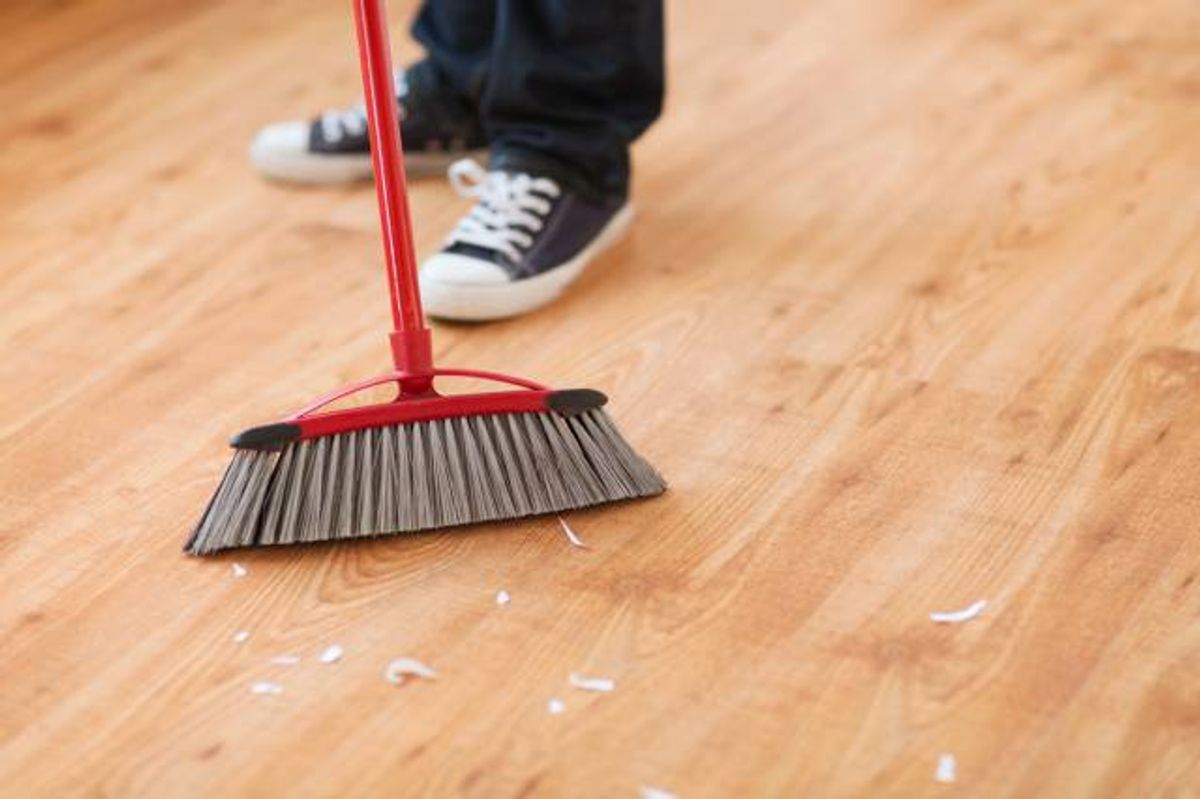Nothing will test everything you thought you believed — and everything you practiced — about gender roles quite like the arrival of a child in your life. In a new story for Newsweek, Ohio State University human sciences and sociology associate professor Claire Kamp Dush reports on a phenomenon plenty of male-female families have experienced firsthand — "Dual-earner couples share the housework equally—until the first baby comes."
Dush, a tenured professor and mother of four, draws on personal experience for inspiration, saying, "From the outset, my husband, a full-time clinical pharmacist, has been a committed partner in caring for our house and raising our children. But I’ve learned that, with our equal division of housework and child care, he’s an outlier." And she shares the results of a new study she co-authored on "The Production of Inequality: The Gender Division of Labor Across the Transition to Parenthood." In a sampling of 182 working couples, the researchers found "Before their baby arrived, men and women in our study were both working roughly the same number of hours inside and outside the home. And after having a baby, they still worked the same number of hours at their jobs. However, during the first weeks of parenthood, men cut back their housework by five hours per week, while women dropped theirs by only one hour."
But what's intriguing about the study — and an insight I'd wager plenty of working moms would not find shocking -- is that she says, "New fathers don’t seem to realize that they aren’t keeping up with their partners’ growing workload.… Time diaries told a different story, one where parenthood added much more work for women than men." That sounds about right.
I move in a pretty enlightened, third-wave feminism era circle, among plenty of families in which the woman's job success and time commitment to her work is equal to if not in excess of that of the man's. The straight fathers I know are smart and open-minded; they're supportive of their partners and eager to share in the child-rearing. So why do I so rarely see any dads in my building's laundry room? Laundry — it's a feminist issue.
Again and again over the course of many years of parenting, I've heard working mothers who are absolutely slamming it on the career front talk wearily about how they can't keep up with their family's dirty clothes, or apologizing at playdates and dinners for the allegedly messy, dusty state of the house. And what strikes me profoundly is the way these conversations so often seem to turn — with either an expression of gratitude for the adult male family member for "helping out" or "pitching in" on the stuff he does do, or a laughing, "Can you believe he did that?" anecdote about his domestic incompetence. Women, at what point are these self-inflicted wounds? Why is it your presumed job to run the vacuum, but a favor when your husband does it?
Earlier this year, the Guardian noted a recent student from the University of Warwick, which found that "different male approaches to household chores might have something to do with class and earning levels. While women still do the most housework, and men still use the 'incompetence' ruse, men also do say they believe in gender equality. However, while those on lower incomes increasingly mucked in with housework, men on higher incomes not so much." In other words, it's these educated, successful men who aren't stepping up to balance the home-job workload, and that's not something that can tidily be blamed on The Patriarchy. It's because a whole lot of women are either quietly just accepting that the housework burden is theirs to shoulder, or they're willfully not inviting their partners into it. Dush says, "Unfortunately, women have been taught to believe that they are primarily responsible for housework and child care. Therefore, some will micromanage their partner’s parenting." It does not advance the cause of womankind to believe men are incapable of loading a dishwasher or mopping a floor.
Of course, data can always be challenged, and Dush's study is just one source. A 2011 study of families and housework found that while moms do on average do more housework, dads spend more time at outside jobs. But there's little question that dividing the load more equally, all around, is good for everybody. A 2014 study published in Psychological Science found that dads who do more housework have daughters who are more ambitious about their own futures, and more likely to envision themselves in fields beyond traditionally female-dominated ones. And a 2010 study called "Work Life Balance: Working for Fathers" found that families that divide outside work and housework equitably are happier. Lead researcher Dr Caroline Gatrell told the Guardian at the time that while there's been great "equalling up" in the division of labor in recent years, women still do most of the domestic tasks.
For Mother's Day, my 11 year-old gave me a homemade card in part because, as she put it, too many of the cards she saw at the store talked about how Mommy does so much cooking and cleaning. She said that's not all moms can do. Believe me, I want my daughters to grow up knowing how to pick up after themselves — how to wash their clothes and scrub a bathtub. I just want them to see that for what it is, Not women's work. Just housework.



Shares